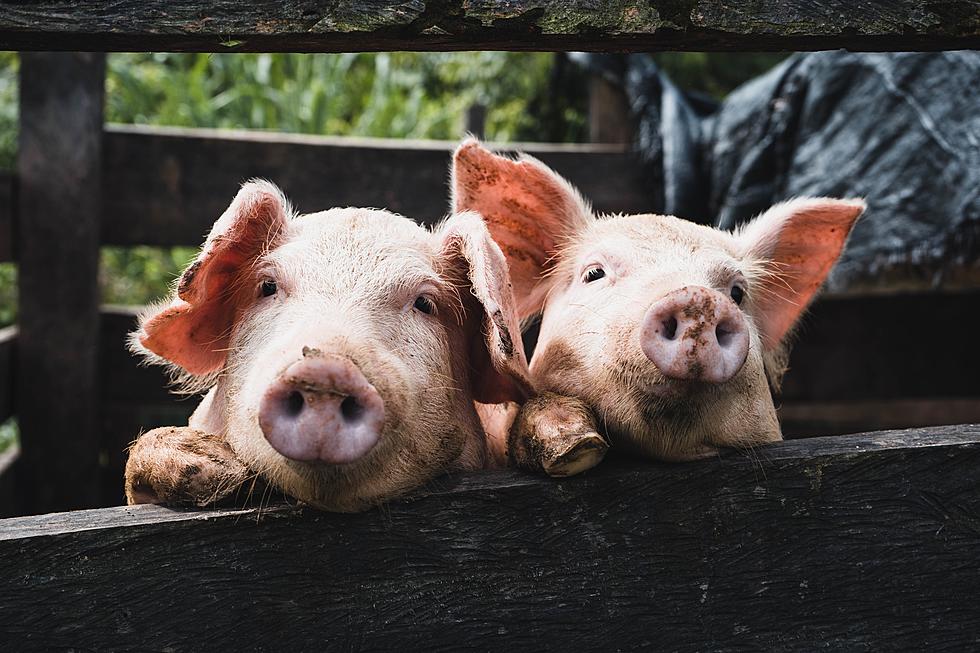
Iowa’s Corn-Based Ethanol Worse for Climate Than Gasoline, Study Says
We're known for our corn here in Iowa. No shocker there.
A majority of the product goes towards animal feed as well as being used to make starches, sweeteners, and over 4,000 everyday products. Nearly 50% of it is used to make ethanol too, according to IowaCorn.org. Its importance to the Iowa economy can hardly be overstated.
Reuters cites the U.S. Renewable Fuel Standard (RFS), a law enacted in 2005, for the significant amount being used for energy purposes. The law says "the nation's oil refiners are required to mix some 15 billion gallons of corn-based ethanol into the nation's gasoline annually. The policy was intended to reduce emissions, support farmers, and cut U.S. dependence on energy imports."
Due to the enactment, "corn cultivation grew 8.7% and expanded into 6.9 million additional acres of land between 2008 and 2016."
With gas prices surging all over the country, you may have noticed E85 is routinely the cheapest type of fuel. Gas pumps all over the state have the label "Cleaner Air for Iowa," prompting its use as opposed to gasoline. For those unaware, "E85 (or flex fuel) is a term that refers to high-level ethanol-gasoline blends containing 51% to 83%," per the Alternative Fuels Data Center.
As it turns out, the claim that ethanol is better for the climate may be false.
The biofuel industry likes to reference a 2019 study performed by the USDA, that claims "ethanol’s carbon intensity was 39% lower than gasoline, in part because of carbon sequestration associated with planting new cropland."
Dr. Tyler Lark, an assistant scientist at the University of Wisconsin-Madison Center for Sustainability and the Global Environment, says the study "Underestimated the emissions impact of land conversion."
A new study published in the Proceedings of the National Academy of Sciences, now says ethanol is "likely a much bigger contributor to global warming than straight gasoline," according to Reuters.
The article continues: "The research, which was funded in part by the National Wildlife Federation and U.S. Department of Energy, found that ethanol is likely at least 24% more carbon-intensive than gasoline due to emissions resulting from land-use changes to grow corn, along with processing and combustion."
The extra emissions are coming from the tilling of fields, which releases carbon that was previously stored in the soil into the air. Applying nitrogen fertilizers also produces emissions.
President and CEO of the Renewable Fuels Association, Geoff Cooper said the study was "completely fictional and erroneous," and claimed the study to be fraudulent because it used "worst-case assumptions [and] cherry-picked data."
President Joe Biden's administration is currently working to determine which policies to continue to implement in order to decarbonize the U.S. economy by 2050 to fight climate change. It's unclear as to how much this study will ultimately affect what the administration determines is the best policy going forward.
The Environmental Protection Agency (EPA) is considering changes to the United State's biofuel policy as well. The EPA has the authority to impose reforms in biofuel use and will propose new requirements in May of next year.
Iowans Celebrate National Best Friends Day
Summer Vacation Ideas where You Won't Have To Leave Eastern Iowa
More From AM 1490 WDBQ





![Iowa is Home to ‘Castletown, USA’ [PHOTOS]](http://townsquare.media/site/725/files/2022/02/attachment-nga.jpg?w=980&q=75)
